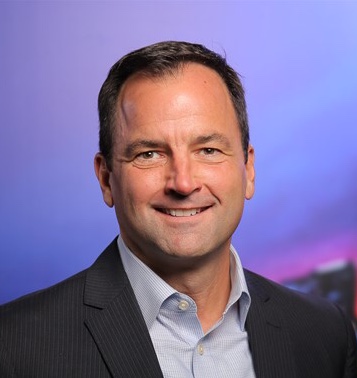Stewart in the Studio
Next-Move Ready: Hot Takes from MBA Annual 2025
Recorded live from MBA Annual 2025 in Las Vegas, this episode of Stewart in the Studio features Marvin Stone, TJ Harrington, and Rich Kuegler sharing insights from the industry’s largest event of the year. From AI governance to appraisal modernization and lender preparedness, the discussion captures the optimism and momentum building across the mortgage market.
To speak to a Stewart Lender Services expert, please fill out the form to the right – we will get back to you shortly.

Stewart in the Studio Form

Episode Notes
- How lenders are approaching AI adoption, automation and governance
- What UAD 3.6 and appraisal modernization mean for valuation professionals
- The resurgence of the broker channel and its surprising efficiencies
- How servicing, retention, and consolidation are reshaping lender strategies
Speaker Bios
Speakers for this episode include:

Marvin Stone
As Senior Vice President, Director of Strategic Initiatives for Stewart Lender Services, Marvin Stone is working on the digital transformation of the transaction process for Stewart’s full range of services that cover the entire mortgage lifecycle. He also contributes to industry technology by participating in MBA’s MISMO Title and Settlement Community of Practice and being part of Stewart’s generative AI council.
Stone has been with Stewart since 2007 and has managed various technology, process and compliance initiatives for the direct, agency and centralized title divisions. Before joining Stewart, he was CIO for a large title company on the West Coast and held strategic roles with other national underwriters and mortgage lenders.
Stone is a frequent speaker at industry events and is sought out for his commentary on industry trends.

T.J. Harrington
T.J. Harrington serves Stewart Lender Services (SLS) as Senior Vice President of Sales and Product Enablement. In this role, T.J. focuses on expanding Stewart’s reach and influence in the title, appraisal/valuation and credit/verification industries.
His extensive experience includes serving as general counsel and strategy-focused roles at major lender services and bank-owned mortgage and title operations.

Rich Kuegler
Rich Kuegler, SVP and Director of Client Success, is responsible for sales and business development strategy for Stewart Lender Services. Since joining Stewart in 2015, Kuegler has developed strategic relationships focused on improving the customer experience in title/settlement and appraisal management solutions. Kuegler is actively involved in industry associations and trade groups, including the Mortgage Bankers Association (MBA), the Consumer Banking Association and The Mortgage Collaborative.

Episode 20 Transcript
View Full Transcript
E20: Next-Move Ready: Hot Takes from MBA Annual 2025
This is Stewart in the Studio, the podcast where mortgage professionals stay ahead of the curve with expert guidance from Stewart’s thought leaders. I’m your host, Marvin Stone. And
each month, we dive into trends, topics and tech to transform your business.
Hey, everyone. Thanks for joining us for another episode of Stewart in the studio. This one from MBA Annual 25 here in the Fountainbleu in Las Vegas, Nevada. As always, the energy at MBA annual is fantastic. A lot of great discussions and panels focus on AI. What is it? How do we use it? What could potential impacts be? A lot of concern about
credit costs and the uncertainty around what’s next in credit. And then there’s some general market optimism, which I think is probably the biggest takeaway.
The rate environment is very favorable. There’s a number of new products coming out to be originated by lenders. Different channels are emerging. There’s also a lot of enthusiasm about different modernization initiatives.
There is some concern though from the lenders that I’ve spoken with and they wanna know, hey, have I prepared correctly? Am I ready to do what’s next? Have I looked at my tech stack? Have I gotten my capacity put together? Do I have the right partners in place? So these are all things we will find out very soon.
So one of the things we had yesterday, I think there was a meeting where we were talking. TJ, you mentioned that some lenders are wanting to kind of look at the AI piece and really jump in, but in some ways it’s sort of another layer that maybe they need to contend with. More pieces instead of more of a whole strategy.
Yeah. So it’s been really interesting, know, to Rich’s point that the market is thawing and people are making investments and saying, hey, if we are going to a more new new normal, how do we grow and scale our business? Obviously, AI is the key and automation is the key. No one wants us to ride the w with hiring and firing the way that we have in the last couple of years. And the concern really has been on AI governance. What are the rule sets around it? What are the risks around it? You know, with AI and that level of automation, the speed it delivers, when you have a mistake, it happens thousands of times before you get your arms your arms around it. So propagation, are there rules of the road? Who owns the data? Copyright issues and derivative works, the issues abound.
And as we see these vendors in the space popping up, promising the sun, the moon, the stars, and the sky, really understanding how the rules of the road works and setting the tone so that we have a safe scaled environment for future originations. Yeah. I think one of the things too is, you know, we were hearing a couple of conversations about, you know, the AI piece, know, that’s obviously the big talk of the show here is it’s not just a federal issue, it’s a fifty-state issue. Every single every single state is coming out with its own regulatory scheme. Everything’s kind of up in the air.
So an interesting parallel. Waymo there was a Waymo car in Austin that did an illegal u-turn and it got pulled over by a cop. Cop knocks on the window, tap tap, rolls the window down. Who’s there to ticket? Same issue with what we see in agentic AI from both an LO perspective and potentially a real estate agent perspective. The state regulators are going, hey, who’s my safe act licensed responsible party? I wanna understand what happens if there’s a bias in the AI.
Ultimately, who’s liable for any consumer harm in the AI space? Yeah. So we kind of hit the high points on AI, which is sort of the hot topic, right? And there’s sort of a thought that there may be an AI bubble or that there’s too much there. But there’s also just the run of the mill work we do every day. UAD three point six on the appraisal side, things like that.
Rich, I know you’ve been on you had your finger on the pulse there. What have you been hearing on that? Well, I think there’s still some reservations around what’s coming next in certain terms of the appraisal modernization efforts. But UAD is it’s coming. There’s definitely been a lot of education about it. A lot of the major AMCs have been preparing their clients for it. I know our team has been doing that with their clients and really working closely with lenders to understand what those different products are going to look like. And also more importantly, working with the field and the licensed appraisers out in the field so that they understand what the expectations are. Yeah. So basically, you know, we’ve got a number of businesses in that space. It’s kind of a sea change for everybody, sort of everyone’s all in it together.
Do lenders feel like they’re ready for it? Or do they need to make major changes on their side? I mean, what’s I know it’s not AI, but what’s sort of their general take on it? I think in general, they’re just you know, kind of waiting for the next step to happen on that. It’s a little different than some of the GSE initiatives with the hybrid appraisals and some of the other technology driven appraisal products, are emerging and coming. But otherwise, it’s kind of a what’s the what’s the deadline and when do we when do we switch? And so, TJ, like, you had some deep conversations. Any surprises in this show that have kind of taken you by surprise? Things that are top of mind for lenders that you may not have seen?
You know, the interesting thing for me has been the rise in the broker the broker space. We have National Association of Mortgage Brokers across town earlier this week, and we see scaled brokerage operations really going out there and winning market share in ways we’ve never seen before. And they’ve done it in kind of an invisible manner. They don’t always show up on the to list from an origination volume perspective. They’re writing with multiple lenders. It’s not just the UWM taking over the world. There really are brokers who are delivering service and product in a way that we haven’t seen for a lot of years in the space. And it makes for an interesting conversation because the thought was that those folks would be less efficient from a manufacturing perspective, be ultimately not a cost leader from a loan estimate perspective. But they are winning deals and they’re doing it in a way that is either new or a throwback to, you know, twenty years ago.
Right. I would say one the one difference on that though, TJ, is that these larger lenders, TPO correspondent wholesale, there needs to be some additional technology deployment to try to make efficiencies on that because of the cost involved in that process and also some of the lack of uniformity in terms of loan submissions.
So to get better execution Yeah. Absolutely. There are a lot of technology tools out there that that the lenders are looking for. Absolutely. And seeing those being brought to bear in that space, I think is why we’ve seen those things. We’ve talked for years about loan manufacturing costs, lowering the cost of production, and it feels like those brokers are taking advantage of that and scaling in a way that is just unexpected to see. So it really is proving the use case this can be done in an independent ecosystem. It’s interesting and refreshing.
So at the same time, we’ve tried to get more efficient in loan manufacturing. We’ve seen a greater explosion basically in the way those things get fulfilled, the different types of loans, which is, you know, you make gains in one area, but it’s still a challenge to get the rest of the area. So as far as next steps, know I mean you’ve had obviously a number of conversations with lenders here lenders here over the past couple of days. Are they still talking about top of funnel
initiatives?
I mean I know that the markets improved. There was an article that just talked about going from seven percent this time last year to six and we’re in the sixes. So life is good comparatively so to speak. Yep. But what are you hearing Rich about top of funnel? I mean, are folks talking about marketing? Are they talking about sales, empowering their LOs, consumer experience? What do you see there?
Definitely talking about the top of funnel in the sense that, you know, volume is should be good as long as it’s the right volume. So I think that there’s definitely an emphasis on marketing campaigns that will help to drive the identification of good candidates that can continue to be good consumers for them. And also the consumer experience, which is so important. There’s a ton of technology tools available there to help make that consumer process more efficient and more customer friendly.
And that’s been interesting for me. I’ve seen a lot of smaller shops that have actually retained their servicing and they’re doing that in preparation for retention. And so they’re saying, we’re going to take the cash flow hit now and not sell into the market even though pricing is reasonable and that they believe that they’re minting a refi way refi wave in the future. And so there is that focus now in a way for retention on the servicing side.
But even mid-sized INBs are doing their best to retain some level of servicing to basically nest egg future volume. And we’ve seen that as a strategy because of the consolidation of the market. You know, the big story is the Rocket Mr. Cooper deal has closed.
And what does that mean for the market? What does that mean for other servicers and sub servicers? What does that mean from a retention standpoint? That’s a seismic market move in this space where we are looking at a lower interest rate environment going forward, and that capture a market share becomes even more impressive for that that group.
But I’m going to kind of play devil’s advocate on that because that was the sort of the mindset for years, which is if I have my own portfolio, I’m going to have enough of a relationship, enough of a consumer experience to make sure that I really capture that. But that’s not always been the case.
I mean, what’s going to make the difference I think it’s a couple different things.
Number one, I would tell you that Rocket has the best mousetrap for fulfillment, really truly, from a customer service experience. I give a lot of respect for the integrated complete service package that they built. And you know, you run that over a portfolio, you do it better, faster and cheaper than anybody and you get those returns and that recapture to a to an x degree.
But to your point though, the challenge always has been in the service the servicing side. You buy the you buy the MSRs and you’re relying on that one or two year do not touch rule from a run off perspective where, you know, LOs are not supposed to be soliciting their former customers from those loans that have been securitized.
That’s not always been enforced as hard as it could be. So you’d see that and that LO would then be eroding the value of those rights for whoever purchased them.
What you see now for Rocket is they’ve completed the circle with both the servicing arm and the fulfillment product perspective.
Yeah. Got it. Makes sense. So Rich, the last thing and we’re going to cut and kind of wrap it up here. Any final thoughts coming out of this?
I mean, it’s been a really optimistic show. The vibe seems to be really good. Great attendance this year. I know we just had a big Stewart showing at the American Land Title Association in New York where there was also a record attendance. So I think everybody’s kind of really upbeat and I just what are your final thoughts as we as we wrap up?
Yeah. I think I would definitely share the optimism in terms of the market. I think that the real estate lending industry is primed for a successful twenty six and into twenty seven. There are a number of short term and some long term projects that are that are in place that are I think really think going to change the way the market interacts. And I think we’ll still see a focus on the customer experience and really that as lenders position to be ready for what is coming next in the market. Okay. TJ, any final thoughts?
You know, I think Rich summed it up very well. We’ve had winter and winter is thawing out and we’re seeing spring the first buds of spring and everyone’s enthused about it. Whether you’re a originator, whether you’re an LO, I mean, everybody top to bottom is just happy to see things changing and at least a steady state. So we will see some changes in inventory. We will see some challenges in a more normal default cycle. But ultimately, it moderates to something that is workable for the future for everybody.
Perfect. Excellent. Well, thanks so much for joining us. TJ Harrington, Rich Kugler, thanks so much. That’s a wrap for Stewart in the Studio, MBA Annual 2025.
That’s it for Stewart in the studio, where mortgage professionals turn for fresh thinking and real world solutions. Find more episodes and insights at Stewart.com/lender. We’ll see you next time.
Ready to get started with our team of experts?
Get in touch with us today to speak to one of our real estate valuation experts and learn how SVI can help your organization succeed.



